To improve your finances, do this first
Most of the financial advice out there saying "here are the things that will change your finances" might sound familiar to you: start an emergency saving fund, set goals, automate your savings, etc.
But none of these are possible if you don't do this one thing first.
Know your spending numbers.
I don't know if you audibly groaned, but when I've suggested it to people, that's what they've done! It can be uncomfortable and even activating to do.
The word spending can bring up all kinds of feelings. "I spend too much on takeout. I should cook more." "I spend more than I make and can't control it." "I buy too many coffee drinks."
I'm not kidding when I say that knowing your spending is brave work. Looking at your spending can bring up vulnerabilities and socially conditioned judgments. We're told not to overindulge, go into debt or buy "frivolous" things. And don't get me started on the sexist implications of that last one. (Makeup and clothes are bad while more "masculine" purchases like technology and cars are "responsible investments." They're not. Society has simply justified them).
If you're feeling shame around your spending and it's keeping you from looking at your expenses, know that there's nothing wrong with you. You're not born to be a spender or innately irresponsible with money. You might just need to know some basics about finances.
Personal finance isn't theoretical. You learn it by looking at your own situation. The way to start is by knowing your spending numbers.
Being kind to yourself is key in shifting into a healthier relationship with money. Strong arming or further shaming yourself to look at your numbers isn't going to help. Every step of the way, remind yourself, "I'm not bad with money," "Money doesn't define my worth," "When I engage with money, I'm taking care of myself."
If the thought of knowing your spending numbers makes you want to run and hide, here are 5 ways to start:
Create a calming work area. Before even looking at bank or credit card statements, create an environment where you'd like to be. Light candles or play soothing music. Get a comforting snack. Have your pet nearby. Consider this a "money date" where you'll get to know your finances better.
Go at your own pace. Go slowly and notice whether you're trying to avoid engaging with certain expenses. If you find yourself getting tired (and doing this work can make you feel all kinds of exhausted), take a break -- even if you've only been doing it a short time. Knowing your own needs will help you through the process of getting familiar with your finances.
Set up your spending categories. What do you spend on? List them out. Make it fun, too. I had a client who called her mortgage "Love Shack" and another who called groceries "Nourishment." Some other common categories are insurance, transportation, utilities, subscriptions and child care. I have a "Spotty and Jinjy" category for my cats. Download this spreadsheet for other categories and feel free to rename them.
Use the method that works for you. Some people use budgeting apps like YNAB or Rocket Money. If you decide to go this route, give yourself plenty of time to get to know how the app works. I had a huge learning curve when using any of the apps so for this exercise, I prefer to use a spreadsheet. It makes more sense to me. Download the spreadsheet to do a simple calculation. Other people use pen, paper and a calculator because it feels more real to them. Do whatever is easiest for you now.
Aim for a snapshot, not a detailed picture. You don't have to be 100% accurate. You're getting an overall idea about what you spend on and how much. Look at your bank and credit card statements from the last 3 months to get an average. Again, go at your own pace and don't get bogged down in details.
Here's what can happen when you know your numbers. You can see it's not as bad as you thought. Or, you might not like what you find. In either case, you have clarity so you can get on to the next step of your finances. Knowing your spending numbers is the step before automating finances or setting up emergency savings or anything else in your money life.
Try it. Go at your own pace and make it as enjoyable as possible.


